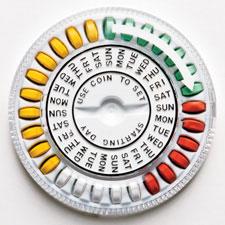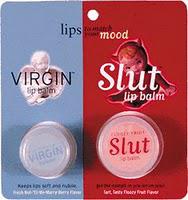By Danielle Burch via Experimentations of a Teenage Feminist

Those ain't no Sweet Tarts!
If you’re a relatively new feminist like I am (my glorious “click” moment only came about a year ago), it’s easy to get sucked up into the feminist agenda — everything from equal pay to reproductive rights — without thinking too deeply about these issues or considering why they’re so pivotal to the women’s liberation movement.
New feminists, especially us young’uns, seem to go through a crazed, sugar-rushed phase where we’re just so excited to be a part of something bigger than ourselves. We start calling out sexist jokes, we doodle feminist-y things in our school notebooks, and we can’t help but pose like Rosie the Riveter each time we catch ourselves in a mirror.
(Tip: Don’t do this in public. People will stare.)
Don’t get me wrong, this “feminist awakening” phase is zealous and incredibly life-affirming, but it can also hurt us if we begin nodding our heads to every single thing our feminist role models say just for the sake of proving our “feminist-ness.” (I was guilty of that when I started calling myself pro-choice just because “all the feminists were doing it.” I still call myself pro-choice, but now I’ve got the understanding to back it up. Yea-yuh.)
Support for birth control is one of those feminist ideals that “comes with the job description,” but how many times, as teens, do we sit down and actually talk about it, or think about the implications it will have for our futures? *cricket chirps*
That’s what I thought.Support for birth control has been synonymous with the feminist movement for decades, but when many of our older feminist allies (and I don’t mean “older” in a bad way, just literally “older” than those of us born in the Era of Classic Nicktoons) talk about birth control and contraception, the focus automatically shifts to women in their 20′s and 30′s. Like birth control doesn’t also affect our lives.
If you’re a young person today, you know about sex. Sex saturates every ounce of media that we soak up: it’s in books, movies, video games, steamy vampire dramas, the list goes on and on. Parents need to realize that if we’re not getting our information from them (via one of those mythical “sex talks”), we’re getting our information from less reliable sources — and many times this misinformation is coupled with ridiculous virgin-whore dichotomy (i.e. “good girls don’t do that”) which makes us even more confused about what the hell is going on with our bodies, about what’s acceptable and what’s not.

Say NO to virgin-whore dichotomy!
We get it, parents. It’s weird to think about your “babies” as sexual beings (it’s weird for us, too, believe me), but that’s no excuse to keep us from the realities of sex, contraception, STDs, and pregnancy. And just because we’re not on The Pill now, doesn’t mean that someday we won’t be. As feminists, teens, girls: we need to know that contraception matters.
So let’s place our hands on our chins, act cool, and ponder some random facts birth control…- About the time your grandparents were growing up (assuming they were born in the 50′s or earlier), birth control was taboo. Many states had laws (i.e. the Comstock Laws) that not only banned people from using contraception, but from distributing any shred of information about it whatsoever. Also in those days, women were often expected to marry at a young age and have large families, regardless of any plans they had for the future.
- Unintended pregnancies can be harmful to women who have preexisting health conditions such as hypertension or coronary artery disease. A true testament to “it’s better to be safe than sorry.”
- Data shows that between 1990 and 2004, U.S. pregnancy rates declined almost 40 percent among 15- to 19-year-old women. One study attributed 86 percent of the long-term decline in teen pregnancies to increased contraceptive use.
- Planned pregnancies (which, as the NWLC points out, usually require contraception) allow women time to make certain lifestyle changes that will promote healthy babies.
- When it comes to HIV, sex is 10,000 times safer with a condom than without one.
- Birth control allows women to choose whether they want to start families earlier in life, hold off to pursue other endeavors

In the 50's and 60's, many women were hearing about their reproductive options for the first time. (Shock!)
(like, you know, kicking ass in college and the working world), or not have kids at all.
Birth control gives “power to the people,” or rather, it gives women the opportunity to make choices that are right for their personal, individual lives. We’re all different, life is short, and we should all be given the choice of how we spend our time — raising a family, going to work, or maybe even both.
Nothing should be off-limits to us.

